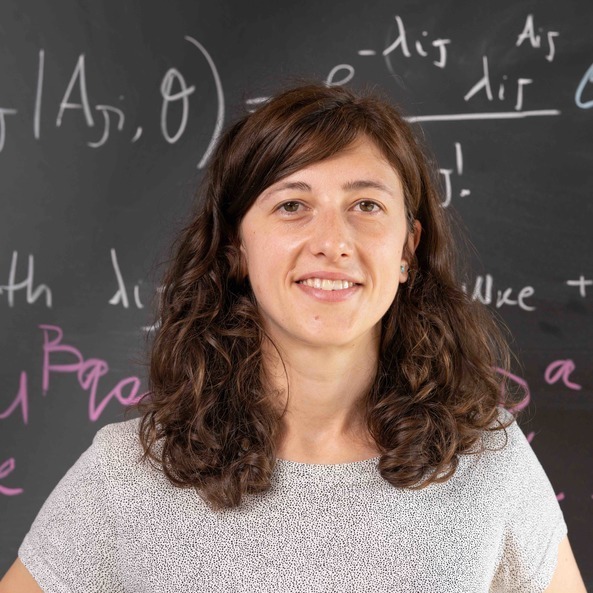
Caterina De Bacco
Max Planck Research Group Leader
Alumni
Note: Caterina De Bacco has transitioned from the institute (alumni). Explore further information here
I am a Max Planck Research Group Leader, leading the Physics for Inference and Optimization group, and a Faculty Member at the International Max Planck Research School for Intelligent Systems. My group is part of the Cyber Valley Initiative.
I am interested in understanding, optimizing and predicting relations between the microscopic and macroscopic properties of complex large-scale interacting systems. I like to approach research by addressing application-oriented problems involving domain experts from different disciplines via developing models and algorithms derived from statistical physics principles.
Inquires about Master degree thesis or internship are always welcomed. Please include your CV, motivation letter with research interests, and BSc/MSc transcripts.
The research goal of the Physics for Inference and Optimization group is understanding, optimizing and predicting relations between the microscopic and macroscopic properties of complex large-scale interacting systems. We pursue this agenda by addressing application-oriented problems of inference and optimization on networks via developing models and algorithms derived from statistical physics principles.
The two main motivations behind this interest are the idea that there is a pressing need for theory to be grounded in concrete applications in order to solve relevant scientific problems in rigorous ways, improving both methodological and domain-specific knowledge.
In addition, in recent years statistical physics has been able to provide new insights and novel approaches to problems in computer science.
Our approach is to address this problem with two main research questions that tackle this issue under different angles and together should provide a cohesive and coherent analysis of the problem:
- How can we exploit the distributed character of complex interacting systems to perform network optimization?
- How can we understand the mechanism leading to large-scale pattern emergence and thus perform robust and scalable inference?
The objective is that by answering these questions one can provide a comprehensive analysis of the bigger problem of understanding large-interacting systems in their different aspects.
Our research reflects this interdisciplinary approach and considers:
- Developing theoretical models capable of describing the mechanism driving the optimization or inference problems, assessing their properties and limitations.
- Building efficient and scalable algorithms to apply them leveraging various statistical physics tools such as message-passing techniques, variational inference or matrix product factorization
- Addressing data-rich open problems involving domain experts from other disciplines. This is stimulated by the ongoing interactions with more empirically-oriented scientists from various disciplines.
-
Since July 2018: Max Planck Research Group Leader, Cyber Valley, MPI Tübingen.
-
Jan-Jun 2018: Postdoc at Data Science Institute, Columbia University, New York.
-
Oct 2015-Dec 2017: Postdoc at Santa Fe Institute, Santa Fe, New Mexico.
-
Oct 2012-Sep 2015: PhD in Statistical Physics at Universitè Paris Sud 11, LPTMS, Paris.
-
Jul 2015: Master degree in Theoretical Physics, Università di Padova, Padova.
-
Oct 2010-June 2011: Erasmus student at Imperial College, London.
-
Jul 2012: Bachelor degree in Physics, Università di Padova, Padova.
